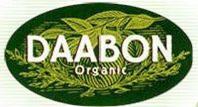
The Japanese market has followed western consumer trends towards organic produce over the last few years, but signs of a similar desire for fair trade produce has until recently been thin on the ground.
One of the pioneering companies in Japan’s organic sector has seen fit to change that, however. Daabon Organic Japan Co has recently introduced its line of organic Ecocert Fair Trade bananas to the market.
The company’s bananas are festooned with a raft of certifications; Ecocert (NOP, EU and JAS organic standards), Ecocert Fair Trade and Rainforest Alliance, EurepGAP, SA8000, the AEON Code of Conduct and more. The Ecocert Fair Trade bananas are a development from Daabon’s existing organic line of the fruit.
Grown in Daabon’s own plantations in the company’s native Colombia, part profits of the fruit goes to improving the living conditions of workers and surrounding communities, according to the company’s Juan Pablo Campos.
“In 2008, from the total banana exports made by Daabon’s CI La Samaria banana Company, over U$1m was deposited in the workers’ cooperative and used for projects in their region,” he told Fruitnet.
The company’s website, point-of-purchase promotional materials and brochures included in packs of bananas explain how much of the price of each pack goes to developing schools, medical centres, roads, sewage systems and other infrastructure.
Daabon’s fair trade bananas are currently being sold under the Green Programme brand through the Japanese consumer cooperative U-Coop, which has 126 stores and home delivers to reach 3m households in the Kanagawa Prefecture.
Another large cooperative, Pal System, has expressed interest in Daabon’s bananas, and the company is in discussions to introduce the product to Pal’s 1.5m member households by September 2009.
“Fair Trade is quite new in Japan. It’s still widely unknown, but it’s a fast growing category in supermarkets,” explains Mr Campos.
“Consumer cooperatives such as U-Coop, Pal System, Tohto Seikyo, Radish Boya and others are ideal vehicles, as their customers are already keen to know about organic, environmentally friendly and socially responsible initiatives.
“They mainly support domestic produce, but have to rely on imported products to cover the many products not available in Japan.”
Mr Campos says even mainstream supermarket chains in Japan like Aeon-Justco and UCC are beginning to educate consumers on the impact of fair trade programmes around the world.
In addition to the strong Japanese consumer demand for high-quality produce, and the growing trend for organics, the initial success of Daabon’s bananas shows the eventual rise of fair trade products in the country is almost a foregone conclusion.






No comments yet